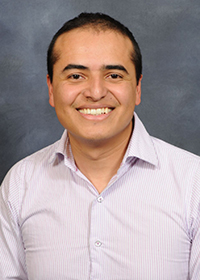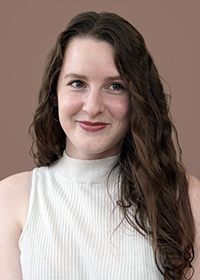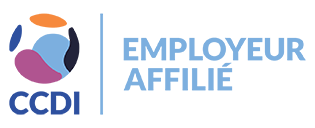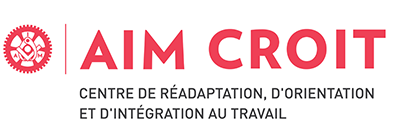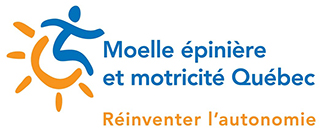- Accueil /
- À propos de nous /
- Équité, diversité, inclusion
-

Nouvelles EDI : Favoriser l’inclusion : Foire sur les carrières et les opportunités...
-

Nouvelles EDI : Honorer les contributions des étudiants autochtones à la recherche...
-

Nouvelles EDI : Une décennie de découvertes et de retombées au site Glen
-

Nouvelles EDI : Relier la science et l’inclusion : École d’été MISI 2025
Équité, diversité et inclusion (EDI) à l’IR-CUSM
L’Institut de recherche du Centre universitaire de santé McGill s’engage à identifier et reconnaître ses défis en matière d’équité, de diversité et d’inclusion (EDI), ainsi qu’à travailler vers la résolution de ces défis au bénéfice de tous les membres de notre communauté, quelle que soit leur identité, appartenance et expérience.
Nous croyons que la diversité constitue une force. Nous croyons que notre milieu de travail, de recherche et d’apprentissage doit permettre à tous d’exprimer leurs différences, et que ces différences doivent être bienvenues et célébrées. Nous aspirons à prévenir les obstacles liés à l’attraction, le recrutement, la rétention, la reconnaissance et l’avancement des groupes sous représentés. Notre objectif est de renforcer notre organisation par l’entremise de l’écoute, l’éducation, la réflexion, l’apprentissage et la croissance. Pour débuter, nous favorisons une approche d’ouverture et d’humilité pour atteindre une meilleure compréhension de notre communauté.
Définitions
Équité
À l’IR-CUSM, nous comprenons l’équité comme le traitement juste et adapté des personnes et des groupes en fonction de leurs besoins, expériences et capacités. Nous promouvons une distribution de ressources et d’opportunités qui assure que les groupes en quête d’équité aient les mêmes conditions de participation et de réussite et surmontent les barrières systémiques auxquels ils sont confrontés.
Diversité
La diversité décrit la présence de la différence dans un groupe de personnes. À l’IR-CUSM, nous comprenons la diversité comme l’éventail de dimensions, de qualités, de caractéristiques uniques des êtres humains et des différences identitaires (de genre, de race, de sexualité, de capacité corporelle, d’ethnicité, de religion, de statut social, etc.) présentes dans tout groupe de personnes. Notre approche institutionnelle vise à comprendre les expériences d’oppression que les groupes sociaux ont vécues à cause de leurs différences dans le but de transformer ces conditions d’oppression.
Inclusion
L’inclusion est l’objectif de notre démarche. Elle crée un sentiment d’appartenance, qui émerge lorsque les équipes engagent le plein potentiel des individus, où l’innovation prospère et où les points de vue, les croyances et les valeurs sont intégrés (Burnette, 2018). Nous voyons l’inclusion comme la création d’une culture qui promeut l’équité, et qui célèbre, respecte, accepte et fait valoir la différence. Cette vision de l’inclusion entraîne des transformations à l’échelle de la culture organisationnelle dont les effets sont ressentis aux niveaux individuel et collectif.
- Notre politique et plan d'action
- Comité consultatif EDI
- Nouvelles et événements
- Les groupes en quête d'équité à l’IR-CUSM
- Nos partenaires EDI
- Ressources et informations
- Le projet Mentorat intégral pour la science inclusive (MISI)
- Nous joindre
Notre politique et plan d'action
Lisez notre politique sur l’EDI ici (téléchargement au format pdf).
Lisez notre plan d’action en matière d’EDI (téléchargement au format pdf).
Comité consultatif EDI
Le comité consultatif EDI de l’Institut est une instance participative et représentative de la diversité de ses membres. Il favorise la discussion des obstacles et des initiatives des membres de l’Institut en matière d’EDI tant dans l’administration que dans la recherche. Il fournit des conseils et formule des recommandations en matière d’EDI à la direction de l’Institut et au Comité ressources humaines et équité, diversité et inclusion du Conseil d’administration.
Les groupes d’affinité de l’Institut offrent des liens, du soutien et des ressources aux personnes employées, aux membres de la recherche et aux stagiaires partageant un même contexte ou intérêt. Ces groupes servent de plateformes pour le développement communautaire, l’entraide, le réseautage et le partage de rétroaction. Ils mettent en œuvre notre Plan d’action EDI en favorisant des environnements et des expériences plus inclusifs pour toutes et tous.
Les groupes en quête d'équité à l’IR-CUSM
Les groupes en quête d'équité sont ceux qui, en raison de barrières historiques et systémiques, se heurtent à des obstacles importants pour parvenir à une véritable égalité d'opportunités dans divers domaines. À l’IR-CUSM, nous priorisons six groupes en quête d’équité: les femmes, les personnes vivant avec un handicap, les personnes autochtones, les membres des minorités visibles ou de groupes racisés, les membres des minorités ethniques et les personnes 2SLGBTQIA+.
Communauté
2SLGBTQIA+
Minorités
ethniques
Personnes qui travaillent avec les peuples autochtones
Personnes en situation de handicap
Femmes racialisées
Femmes
Neuroinclusion – Fondements
Neuroinclusion – Pratiques
Le projet Mentorat intégral pour la science inclusive (MISI) vise à accroître la participation et la réussite des femmes et des étudiants autochtones dans la formation à la recherche.
Nos partenaires EDI
- Comité d'action pour l'inclusion, la diversité et l'équité du Conseil d'administration du CUSM (C-AIDE)
- L’IR-CUSM est fier d’être employeur affilié du Centre canadien pour la diversité et l’inclusion, qui permet à sa communauté d’avoir accès à un large éventail de ressources et de webinaires gratuits. Pour plus d’information.
- L’IR-CUSM est membre du National Leadership Circle for Indigenous Inclusion d’Indigenous Works.
- Les chercheuses et chercheurs ainsi que les membres du personnel de direction de l’IR-CUSM désireux de recruter des personnes en situation de handicap ou ayant besoin de soutien pour des membres de leur équipe en situation de handicap peuvent bénéficier des services de nos partenaires Aim Croit - (Association internationale des machinistes et des travailleurs et travailleuses de l’aérospatiale – centre de réadaptation, d’orientation et d’intégration au travail) et Moëlle épinière motricité Québec.
Ressources et informations
Le guide de rédaction inclusive de l’IR-CUSM
Votre outil de ressources EDI personnalisées
Soutenir un.e employé.e en transition de genre
Surmonter les barrières : Recruter et retenir les personnes en situation de handicap. Guide institutionnel 2024
Notre engagement en faveur de l'équité, de la diversité et de l'inclusion, Programme en réparation du cerveau et en neurosciences intégratives (RCNI) de l'IR-CUSM.
Le poids des mots : inclusion et respect, la Faculté de médecine et des sciences de la santé (FMSS) de l’Université McGill
Le Bureau de la responsabilité sociale et de l’engagement communautaire (RSEC), Faculté de médecine et de sciences de la santé, Université McGill
Centre Canadien pour la Diversité et l’Inclusion – Ressources, calendrier EDI et communauté de pratique. En savoir plus sur les services et ressources offerts.
Calendrier des événements, Centre canadien pour la diversité et l’inclusion
Commission des droits de la personne et des droits de la jeunesse
Solutions Mieux-être LifeWorks
Le Centre national pour la vérité et la réconciliation (CNVR)
Nous joindre
Si vous croyez faire l'objet de harcèlement, de stéréotype ou de préjudice, ou si une personne que vous connaissez en fait l'objet, veuillez communiquer avec edi.ri@muhc.mcgill.ca.
Pour toute suggestion ou si vous souhaitez participer dans des initiatives soutenant l’EDI à l’IR-CUSM, veuillez communiquer avec edi.ri@muhc.mcgill.ca.
